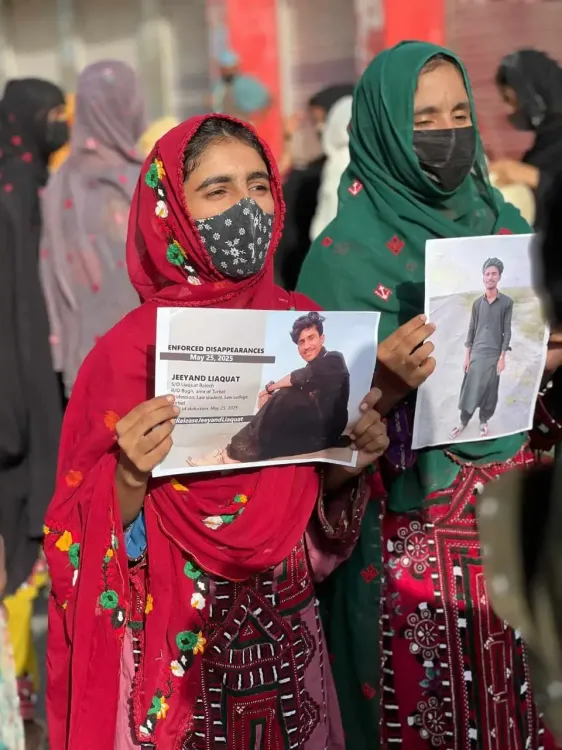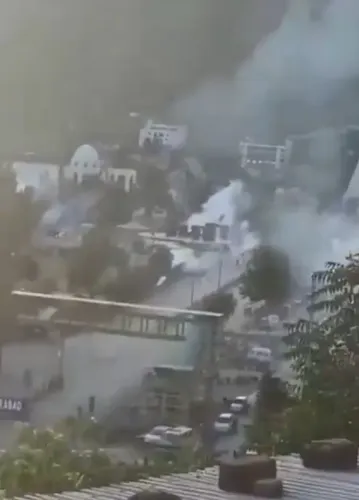What Are the Recent Human Rights Abuses in Balochistan?

Synopsis
Key Takeaways
- 123 enforced disappearances reported in August.
- 26 killings occurred, primarily by security forces.
- Quetta and Kech had the highest abduction rates.
- Significant involvement of military and intelligence agencies.
- Internet shutdowns and Section 144 imposed across Balochistan.
Quetta, Sep 29 (NationPress) A prominent Baloch human rights organization reported on Monday that there have been significant violations of human rights throughout Balochistan, documenting 123 enforced disappearances and 26 killings attributed to Pakistan-backed death squads and security forces during August.
The Human Rights Council of Balochistan (HRCB) revealed that in August 2025, there were 123 recorded instances of enforced disappearances. Out of these, 106 individuals remain unaccounted for, 12 were released, and five were extrajudicially killed while in custody.
The report specified that Quetta had the highest number of abductions with 27 cases, followed by Kech with 25 cases and Dera Bugti with 15 cases. Gwadar had nine cases, Awaran eight, and Karachi seven. Nushki and Panjgur each recorded five cases, while Dalbandin, Khuzdar, and Washuk reported three cases each. Chagai, Hub, Lasbela, and Kharan had two cases each. Single instances were documented in Punjab, Barkhan, Mastung, Kalat, and Harnai,” emphasizing the widespread issue of enforced disappearances across Pakistan.
The report further noted that 81 instances occurred during house raids, while 36 individuals were taken from public spaces including streets, shops, and offices under the guise of detention. Three individuals were seized from checkpoints, and another three were summoned to military camps and subsequently disappeared.
The HRCB attributed 60 abduction cases to Pakistan's Frontier Corps (FC), with intelligence agencies linked to 33 cases and the Counter Terrorism Department (CTD) responsible for 28 abductions, while two cases were ascribed to death squads.
During the same timeframe in August, 26 individuals, comprising 24 men and two women, lost their lives, primarily at the hands of Pakistan-backed death squads and security forces. The report also mentioned extensive internet and mobile service shutdowns, along with the enforcement of Section 144 throughout the province.
“Most of these incidents stemmed from targeted attacks, with nine cases documented. Five bodies were discovered, and four individuals were killed while in custody. Additionally, four cases were connected to honor-related killings. Furthermore, two fatalities occurred during encounters, one was a result of mortar shelling, and another was due to indiscriminate gunfire,” the report emphasized.
According to the HRCB, Kech had the highest death toll among Balochistan’s districts, with 10 killings, followed by Panjgur and Washuk, each recording four cases. Kachhi, Khuzdar, and Naseerabad had two cases each, while Awaran and Kharan documented one case each.









